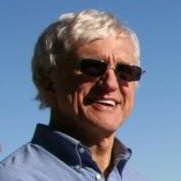Dr. Bryant Villeponteau
Bryant Villeponteau, Ph.D. is Senior Vice President of R&D at Genescient and Chairman and Chief Scientific Officer at Centagen.
Genescient’s focus is to extend healthy human lifespan by using advanced genomics to develop therapeutic substances that attack the diseases of aging. It is the first company founded to exploit artificial selection of animal models for longevity.
Its extremely long-lived animal models (Drosophila melanogaster) have been developed over 700 generations. They are an ideal system for the study of aging and age-related disease because Drosophila metabolic genetic pathways that are highly conserved in humans.
Their sophisticated analysis cross-links gene function in Drosophila with their human orthologs, thus revealing targets for therapeutic substance development. To date Genescient has discovered over 100 of these genomic targets, all related to the primary diseases of aging.
This large library of targets, enables Genescient to effectively select and test therapeutic drug candidates. To date, Genescient’s “proof-of-concept” testing program has yielded a number of very promising therapeutic substances.
Bryant’s patents include Assays for regulators of mammalian telomerase expression, Methods and reagents for regulating telomere length and telomerase activity, Assays for the DNA component of human telomerase, Peptides related to TPC2 and TPC3, two proteins that are coexpressed with telomerase activity, Method and Kit for enhanced differential display, Mammalian telomerase RNA gene promoter, and RNA component of mouse, rat, Chinese hamster, and bovine telomerase.
His papers include Fine-Tuning Your Longevity Genes, Cataloging altered gene expression in young and senescent cells using enhanced differential display, Antisense telomerase treatment: induction of two distinct pathways, apoptosis and differentiation, Reprogramming of Telomerase by Expression of Mutant Telomerase RNA Template in Human Cells Leads to Altered Telomeres That Correlate with Reduced Cell Viability, An altered repertoire of fos/jun (AP-1) at the onset of replicative senescence, Gradual Phenotypic Conversion Associated with Immortalization of Cultured Human Mammary Epithelial Cells, and Effect of Replicative Age on Transcriptional Silencing Near Telomeres in Saccharomyces cerevisiae.
Bryant earned his BA in Business Economics from the University of California, Los Angeles (UCLA). He earned his MS in Biostatistics from UCLA in 1972. He earned his Ph.D. in Molecular Biology and Biochemistry at UCLA in 1977.
Read his LinkedIn profile and his Facebook page.
